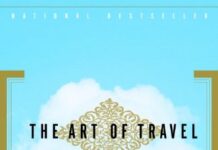
Ebook Info
- Published: 2008
- Number of pages: 270 pages
- Format: PDF
- File Size: 3.12 MB
- Authors: Alain De Botton
Description
“There’s no writer alive like de Botton” (Chicago Tribune), and now this internationally heralded author turns his attention to the insatiable human quest for status—a quest that has less to do with material comfort than love. Anyone who’s ever lost sleep over an unreturned phone call or the neighbor’s Lexus had better read Alain de Botton’s irresistibly clear-headed new book, immediately. For in its pages, a master explicator of our civilization and its discontents explores the notion that our pursuit of status is actually a pursuit of love, ranging through Western history and thought from St. Augustine to Andrew Carnegie and Machiavelli to Anthony Robbins. Whether it’s assessing the class-consciousness of Christianity or the convulsions of consumer capitalism, dueling or home-furnishing, Status Anxiety is infallibly entertaining. And when it examines the virtues of informed misanthropy, art appreciation, or walking a lobster on a leash, it is not only wise but helpful.
User’s Reviews
Reviews from Amazon users which were colected at the time this book was published on the website:
⭐I wish I had discovered Alain de Botton sooner, but better late than never. His erudition is remarkable, his perception is acute, and his writing is marvelously phenomenologically rich yet lucid. Best of all, in this book he tackles a fundamentally important topic, namely our need for social status and our anxiety over our status falling short.This is a book which must be read attentively in its entirety, and I indeed found it hard to put down, but perhaps I can still highlight some key points to give a feel for the subject matter:- Because we judge ourselves according to how others judge us, one of our basic needs is the love of the world. This is despite the fact that the judgments of others are frequently shallow and misguided, and the criteria for judgment have varied across cultures and history.- We take our social status as an indicator of how much we’re loved, or can expect to be loved, by others.- We determine our status by comparison with a reference group of other people, not in absolute terms. That means that progress of our reference group doesn’t necessarily improve our individual status, and may even diminish it.- Unlike the days when status was largely inherited, the meritocratic notion that anyone can achieve anything, and the related assumption of social mobility, gives hope to those who wish to rise in status, but it also results in self-blame when we fail. This is despite the fact that achievement is greatly influenced by factors outside our control (ie, luck).- Our self-esteem is also affected by our achievement relative to our own expectations. This implies that, if we can’t achieve more, it may make sense to lower our expectations (however outlandish that may sound). Likewise, if we’re inspired by the success stories of others, but we fail, those stories may worsen our self-esteem. And of course the mass media exacerbates these problems by constantly encouraging us to “aim high” and throwing rags-to-riches success stories in our faces.- The poor were once honored as an integral and productive part of society, or at least they weren’t viewed negatively. This changed with the rise of meritocracy, with material wealth becoming the primary measure of merit/status, and with the poor thus being considered deserving of low status and snobbish derision. Social Darwinism took this attitude further with the view that the poor deserve to be weeded out of society.- We’re often uncertain or mistaken about what will make us happy. For example, the pleasure provided by material acquisitions is usually fleeting, whereas we expected it to be sustained or even permanent. Likewise, in envisioning careers, we often make the mistake of focusing on the positives while downplaying the negatives.- We can at least partly control status anxiety by learning to become our own judges, being attentive to how art subverts prevailing status norms, seeing our fallible shared humanity through art which depicts tragedy, using comedy to underminine pretensions, remaining aware of our individual and collective mortality, focusing on collective rather than individual success, and orienting ourselves towards nonmaterialistic values which lead to richer and more balanced lives. These are generally difficult things to do, and only partly effective even in combination, but better to make the effort rather than just muddle along with the herd.I very highly recommend this book, especially to people who detect a tradeoff in their lives between seeking/maintaining status versus being generally fulfilled, and are troubled by that predicament. This book provides an elegantly multifaceted exploration of this terrain, and it’s especially rewarding to readers who are themselves erudite enough to be familiar with the diverse spectrum of examples from social and intellectual history which de Botton references. As some reviewers have noted, de Botton could have expanded the book, such as by drawing more on non-Western perspectives, but it makes more sense to attend to what the book offers rather than lament about what it leaves out — and it offers plenty.
⭐De Bottom writes, “like Jane Austen and George Eliot, the great artists of everyday life may help us to correct many of our snobbish preconceptions regarding what there is to esteem and honor in the world “. He brings to the reader an in depth examination concerning one’s values. Often we follow the lead about what we should pursue and yet fail to question whether what we pursue is an important priority. De Bottom does an excellent job with an in depth analysis of the relationship between wealth and happiness. You will discover why and in which ways status anxiety breeds envy and envy breeds greed. What we “love” tells us who we are! “Tell me what a man loves,” Augustine wrote in the 4th century, “And I’ll tell you what a man is”. To escape the status community of Rome, he had to create, a “City of God”, to find his place in it. De Botton’s book, “Status Anxiety”, is a modern day approach to what has become an obsession, “keeping up with the Jones”. Moral confusion and materialism are two different sides of the same coin and we only learn to reorient ourselves as we mature. Maturity requires self-reflection and reading “Status Anxiety” is a fine example of what needs to be done to re-set our moral compass. Putting our wants, needs, desires, into a balanced perspective is difficult for many of us who identify what we have with “who” we are. Examining our lives means reviewing the context in which our lives take place. De Botton tells us that art’s primary function is to clear human confusion. In the 1800’s authors like Eliot, Austin, James, Balzac, provided characters and situations articulating what the content of status anxiety was all about. “Status Anxiety” will open your eyes in a new and enchanting way. Written with style and intelligence, this book is an easy and worthwhile read. You do not need a background in psychology, sociology, philosophy, or religion. All you need is a little time and mental space to absorb its’ profound and compelling message. For example, when De Botton writes, “Standing witness to hidden lives, novels may act as conceptual counterweights to dominant hierarchical realities. They can reveal that the maid now busying herself with lunch is a creature of rare sensitivity and moral greatness, while the baron who laughs raucously and owns a silver mine has a heart both withered and acrid” (p.131 ). Here De Botton sites one of my favorite novels, Middlemarch”, by George Eliot. If you enjoy fiction that is timeless, you probably will enjoy what these authors have to teach us.
⭐Status anxiety is the disease of modern age.despite the abundance of material comforts we are unable to enjoy them. When you achieve one milestone you notice a neighbor a class mate or colleague who has achieved more.instead of celebrating you grieve.
⭐I sadly suspect that those who need and would benefit most from the book will not read it. There are some, who are feeling low, who’ll undoubetdly benefit. But the major proponents and causes of Status Anxiety will carry on thrusting their image and persona of societal success upon those who feel anxious about keeping up.For me, just understanding the modern manifestation of what is now partly a social-media driven curse helps enormously. Being able to disconnect and easily deal with blatant social status-driven behaviour is simpler and more rewarding.
⭐This is the most fabulous book and really worth buying – its basically about keeping up with Jones’s and non-stop shopping on useless items in order to impress others. Also got this book for £3 (brand new) full price £16.99 so I am an extremely happy little shopper. Have read it before as library book one of those books that I’ve always meant to buy and now I have 🙂
⭐Fantastic book, very detailed and Interesting. This isn’t a self help book, so was genuinely thought provoking
⭐This book put into words my anxiety and dissatisfaction regarding some areas of my life where I feel that I do not measure up to the status ideal. It has helped me to understand myself and others better. I was left dissatisfied because I hoped, perhaps unrealistically, that the author would articulate an alternative to bourgeois capitalism, or suggest something more tangible for overcoming status anxiety. Instead he proposes that we seek for alternative for spaces where we can be appreciated in accordance with our own values. Fair enough, I suppose.
⭐Takes a light hearted look at the ills of wanting rather than needing!
Keywords
Free Download Status Anxiety (Vintage International) in PDF format
Status Anxiety (Vintage International) PDF Free Download
Download Status Anxiety (Vintage International) 2008 PDF Free
Status Anxiety (Vintage International) 2008 PDF Free Download
Download Status Anxiety (Vintage International) PDF
Free Download Ebook Status Anxiety (Vintage International)




